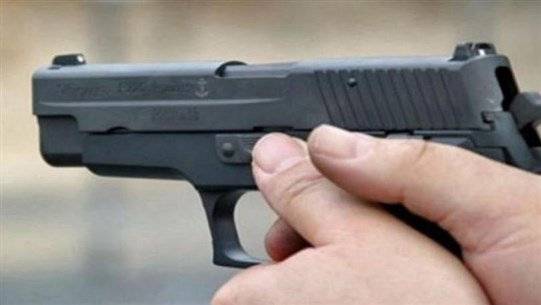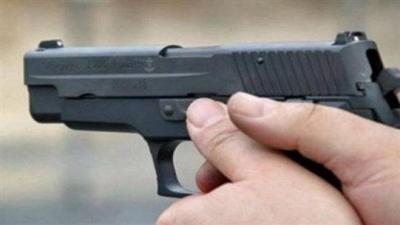While the country is undergoing a severe economic crisis, it has not adversely impacted the "arms trade." Unlike many professions and goods that have experienced stagnation and decline, the arms market has not faced this harsh reality, according to various market insiders.
Quickly, Saeed (a pseudonym) disassembles his weapon and reassembles it. He elaborates on the role of each component in his pistol. His detailed discussion about the frame, the grip, and the barrel indicates his extensive experience in the arms world, having worked intermittently in arms trading for many years before finally dedicating himself entirely to it. Now that "selling a single piece of weaponry equals an entire month's salary," he did not hesitate to resign from his job at the company he worked for and focus on selling arms.
Saeed is cautious about sharing many details related to his work, but he mentions the overall framework. Weapons are imported from abroad by major traders who hand them over to local agents with extensive experience in this field. These agents, in turn, sell the weapons to local traders who sell them to customers. For Saeed, the customer base hasn't changed as much as the type of customers. Previously, the overwhelming majority of buyers were enthusiasts and collectors well-versed in everything related to firearms. However, today, many customers are purchasing firearms for the first time. "Some of them don’t even know how to pull the trigger," Saeed remarks. He observes that this group tends to prefer new and sealed weapons over used ones, fearing that the latter may have been involved in previous incidents or crimes.
Saeed notes that some Lebanese now see firearms as a means of protection in light of the rise in theft, robbery, and murder incidents, thus acquiring weapons not as a hobby but believing they can offer protection amid the recent ineffectiveness of state institutions. In this context, Saeed admits that the working conditions for arms traders have become easier and more comfortable than they were before the crisis, to the extent that some have begun to display their weapons on social media platforms and WhatsApp stories. However, this does not conceal the reality that their work is always fraught with danger, as law enforcement authorities often raid their homes, arrest them, and seize their "merchandise."
### Price Increase
At the onset of the crisis, some believed that weapon prices would drop due to their pricing in dollars and the decline in the purchasing power of Lebanese citizens. However, this did not happen, as some weapons maintained their prices while others increased due to rising demand.
Currently, it is difficult to find a pistol priced below one thousand US dollars, and naturally, prices vary based on the type and quality of the pistols. The prices of new models are higher than those of older editions. In Lebanon, Glock, Tavor, .14, 9 Star, and the Russian Viking pistols are highly popular, which raises their prices due to high demand and limited supply for certain models. Regarding military rifles, the voice of the "Kalashnikov" drowns out all others, as it is considered one of the best-selling arms in the Lebanese market. This weapon comes in various forms, the cheapest of which is popularly known as the "Kalashnikov Abu Khashba," estimated to cost around 700 dollars, while other types like the Iron Number Five and Russian Circle 11 are more expensive. The M4 rifle is typically for those with substantial financial means, as its price exceeds 4000 dollars.
Prices of ammunition have also risen. A pistol bullet now costs around 20,000 Lebanese pounds, while a Kalashnikov bullet has increased in price from 500 pounds to approximately 10,000 pounds, and the price for an RPG round starts at 50 dollars. These prices indicate the amount of money "burned" due to celebratory gunfire or individual and family clashes that occur in various Lebanese areas. A simple calculation shows that some clashes lasting several hours can cost thousands of dollars due to the consumption of weapons and ammunition, and sometimes even shells. Finally, firing a magazine of bullets now equates to the minimum wage, making it impossible for the impoverished classes to purchase and use firearms. Furthermore, the high price of weapons contradicts the notion that those who steal under the threat of arms do so out of necessity and hunger, as selling a gun can afford its owner, for instance, a motorcycle to work on or set up a modest stall for livelihood.
### No Legal Licenses
Although the Law on Weapons and Ammunition mandates that firearm holders obtain a permit from the Ministry of Defense, a large number of Lebanese violate this law and do not seek to license their weapons, negatively reflecting the issues of weapon proliferation and rising crime levels. According to the Small Arms Survey website, which specializes in weapons statistics worldwide, there are approximately two million firearms in Lebanon. Of every 100 people in Lebanon, 32 are armed. Assuming that the average price of a weapon exceeds one thousand dollars, the total value of arms in Lebanon exceeds two billion dollars. Thus, it can be stated that economically impoverished Lebanon is rich in arms, with its market witnessing prosperity instead of collapse amidst a significant economic downturn.




